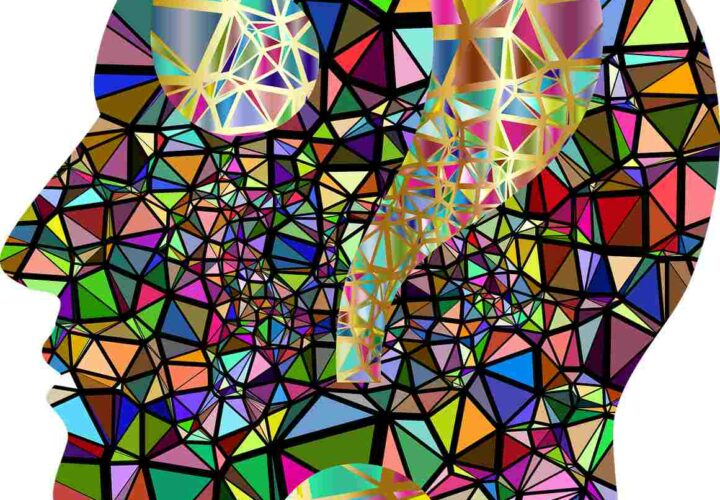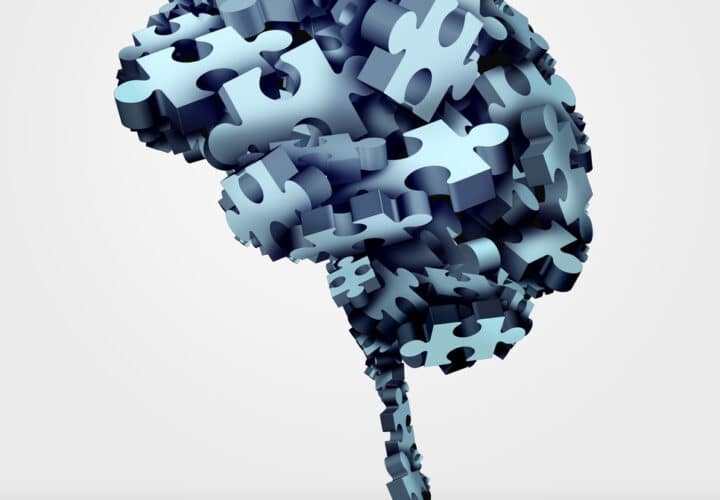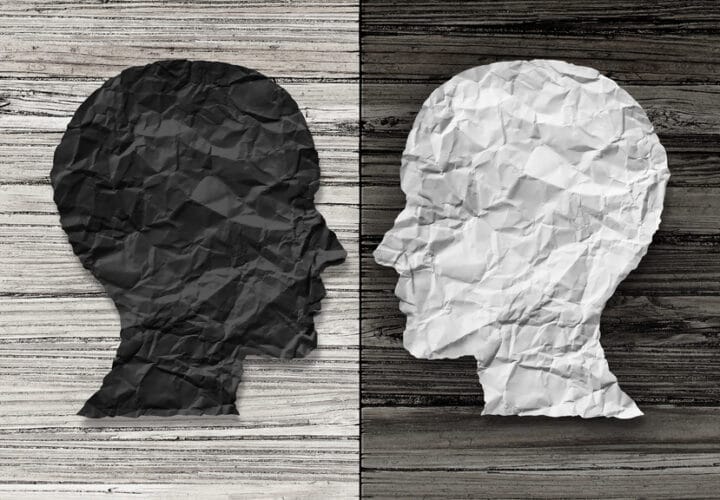Lewy body dementia (LBD) accounts for nearly 20 percent of dementia cases worldwide. Discover what causes lewy body dementia, symptoms and treatments.
Lewy body dementia (LBD) is one of the most common forms of dementia. The Lewy Body Dementia Association (LBDA) estimates that the brain disorder makes up nearly 20 percent of dementia cases worldwide. Robin Williams, who was initially misdiagnosed with depression, was diagnosed with the disease after his death. Lewy body dementia is sometimes described as a combination of Alzheimer’s disease and Parkinson’s. But researchers recently discovered that the disease has a unique genetic profile. Those with LBD have some genes that are linked to Alzheimer’s. Nevertheless, its genetic profile differed from those with other forms of dementia.
What Causes Lewy Body Dementia?
Researchers are unsure of the exact causes of Lewy Body Dementia. However, they believe that having abnormal amounts of Lewy bodies in the brain’s nerve cells leads to common symptoms. Lewy bodies are protein clumps that mainly consist of a protein known as alpha-synuclein. This protein has also been associated with Parkinson’s disease. While researchers have found genes connected to LBD, they still do not know how much genetics or lifestyle factors contribute to the disease.
How Does Lewy Body Dementia Affect Memory?
Lewy bodies often affect parts of the brain related to memory, such as the hippocampus. As a result, Lewy Body Dementia is commonly misdiagnosed as Alzheimer’s disease. Nevertheless, some symptoms are distinct. For example, symptoms like memory loss may appear shortly after an Alzheimer’s diagnosis. In contrast, those with LBD may not have memory issues until later. Some people can have both LBD and Alzheimer’s.
Those with Alzheimer’s disease generally do not experience hallucinations until the later stages of the disease. With Lewy Body Dementia, symptoms such as paranoia and hallucinations happen early on. Despite experiencing cognitive issues, some people with LBD often appear to have brief moments of clarity, whereas those with Alzheimer’s usually don’t go in and out of a dementia-like state.
Lewy Body Dementia can lead to the following cognitive problems:
- Difficulties related to thinking, planning, reasoning, memory or visual and spatial abilities
- Suddenly becoming tired or losing concentration, despite being alert previously
- Frequent visual hallucinations, or seeing things that don’t exist
How Does Lewy Body Dementia Affect Behavior?
According to the National Institutes of Health (NIH), LBD may also affect mood, causing the following symptoms:
- Apathy
- Agitation
- Depression
- Delusions
- Paranoia
How Does Lewy Body Dementia Affect Motor Skills?
Those with Lewy Body Dementia often have symptoms that resemble those with Parkinson’s disease. In fact, people with Parkinson’s also have lewy bodies in their brain that affect the brain’s nerve cells. Some patients may have both LBD and Parkinson’s disease. Researchers are still trying to determine exactly how each disease differs from one another.
These symptoms often resemble those found in people with Parkinson’s disease:
- Limited facial expressions
- Stiff muscles or rigidity
- Decreased mobility
- Shuffling instead of walking
- Balance issues
- Tremors
How Does Lewy Body Dementia Affect Sleep?
People with LBD often experience REM sleep behavior disorder (RBD). Scientists believe studying this connection may help them better predict who will develop LBD. Those with RBD act out vivid or violent dreams. People may scream, kick or punch while they sleep. Those with LBD may also experience these sleep-related symptoms:
- Trouble falling asleep
- Sleeping for long periods during the day
- Restless legs syndrome
Are There Other Symptoms of Lewy Body Dementia?
LBD may also lead to issues like constipation, fainting, loss of a sense of smell or changes in body temperature. In addition, researchers predict that about 17 percent of people with LBD have Capgras syndrome. Capgras syndrome occurs when someone mistakes their caregiver or loved one for an imposter.
How Do Doctors Diagnose Lewy Body Dementia?
Unfortunately, LBD is usually the most frequently misdiagnosed type of dementia. LBDA estimates that it often takes about three doctors and over a year and a half to diagnose LBD. Their survey of nearly 1,000 participants with LBD discovered that about 80 percent of them were misdiagnosed. In an article published in Neurology, Susan Schneider Williams, Robin Williams’ wife, writes about their struggle to get an accurate diagnosis and determine what was happening to his brain. “My hope is that it will help you understand your patients along with their spouses and caregivers a little more. And as for the research you do, perhaps this will add a few more faces behind the why you do what you do,” she writes.
People can either be diagnosed with dementia with Lewy bodies or Parkinson’s disease dementia. If someone is experiencing symptoms that could be LBD, they should try visiting a neurologist, rather than a general physician, to try and get an accurate diagnosis. While LBD can still only be officially diagnosed by an autopsy, doctors use the following methods to determine if someone may have LBD:
They can look for biomarkers of Lewy Body Dementia, including abnormal proteins, with the following:
- A SPECT or PET scan
- (MIBG) cardiac scintigraphy, which looks at how nerves are functioning in the heart’s blood vessels
- Sleep tests that monitor brain waves
In addition, doctors may do the following:
- Ask about the patients’ medical history and symptoms they are experiencing
- Conduct neuropsychological tests to determine if someone is having memory issues
Several years ago, researchers also suggested that doctors can more accurately diagnosis LBD with a questionnaire that helps doctors determine whether patients have Alzheimer’s or LBD and only takes three minutes to fill out.
Are There Any Treatments for Lewy Body Dementia?
While there is no cure for LBD, some treatments may temporarily alleviate symptoms. For example, those with LBD can work with a speech therapist who can help with issues linked to language or trouble swallowing, or a physical therapist to help with movement issues.
The LBDA suggests that cholinesterase inhibitors may treat symptoms related to cognitive issues. While the medication was developed to help those with Alzheimer’s, the association says research has found the medication may help those with LBD even more. In addition, they suggest a drug called levodopa that’s typically given to Parkinson’s patients may help treat movement problems, though side effects may not be worth taking this medication.
Because drugs may cause side effects that can be fatal (especially if misdiagnosed) those who have been diagnosed with LBD should talk to a doctor who specializes in LBD before taking any medication.





My sister is 61 years and has been suffering from PD for the past 6years. Lately her condition started hallucinating and I did not know how to handle the situation. She could not sleep and tried to find and catch the imaginary people who she thinks are real, she had tremors for several years and was gradually becoming worse before we found PD herbal supplement from totalcureherbsfoundation.com that was able to get rid of her disease and alleviate all symptoms within the short period of her 15 weeks of usage.
Interesting. Can you tell me more
Pls give me feedback on what your sister is taking.
Please! Dementia is the Umbrella word for several typs of neurological disorders, e.g. Alzheimers, Lewy Body Dementia, ParkinsonswithDementia and Vascular Dementia(blood does not bring enough oxygen to the front of the brain, frontal lobal area)
After my PD diagnosis, I started out taking only Azilect, then Mirapex and sinemet as the disease progressed but didn’t help much. In July last year, I started on PARKINSON DISEASE TREATMENT PROTOCOL from Herbal Health Point (ww w. herbalhealthpoint. c om). Few months into the treatment, I made a significant recovery. After I completed the recommended treatment plan, almost all my symptoms were gone, had wonderful improvement with my movement and tremors . Its been 6 months since I completed the treatment, I live a better life..